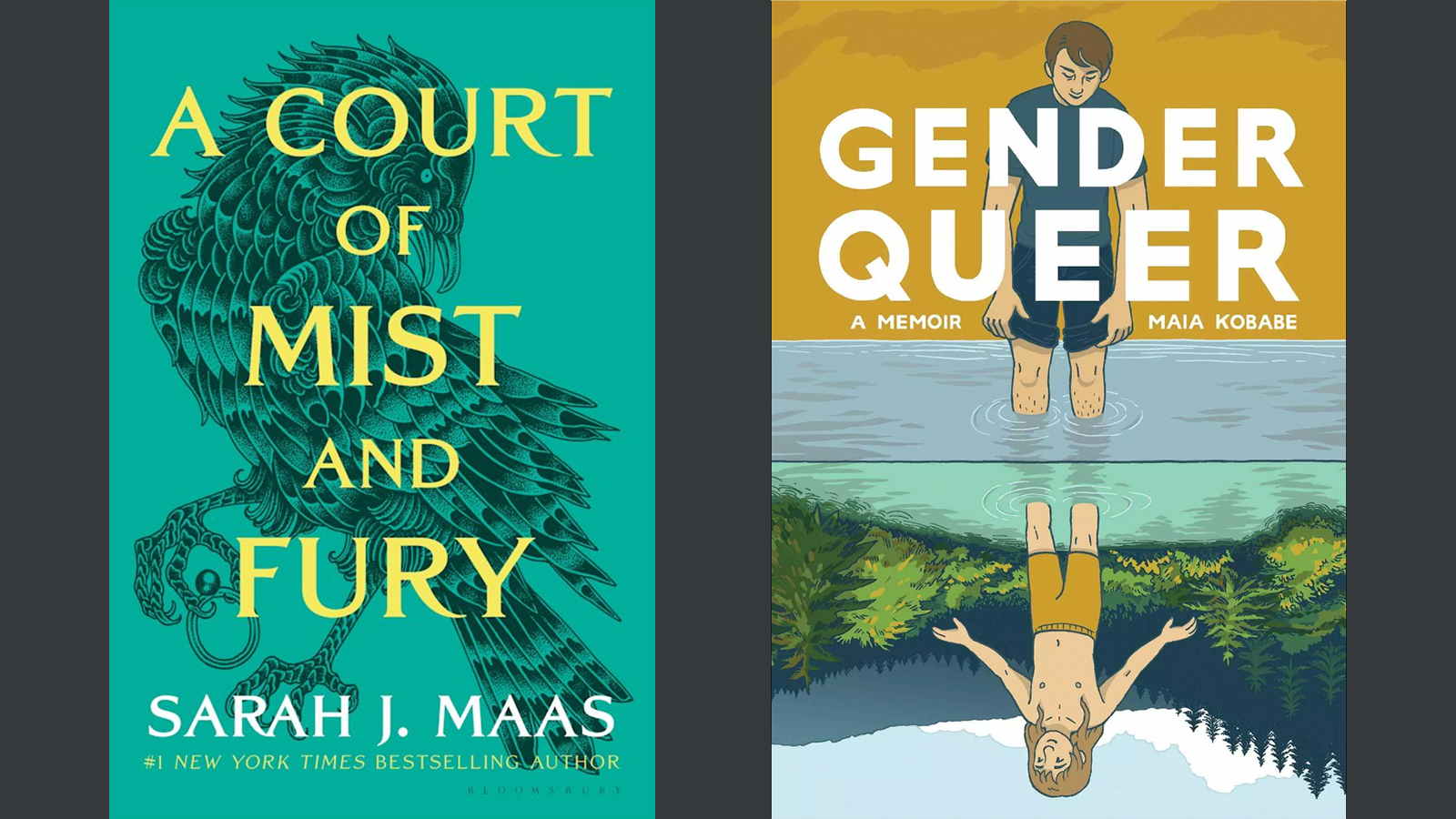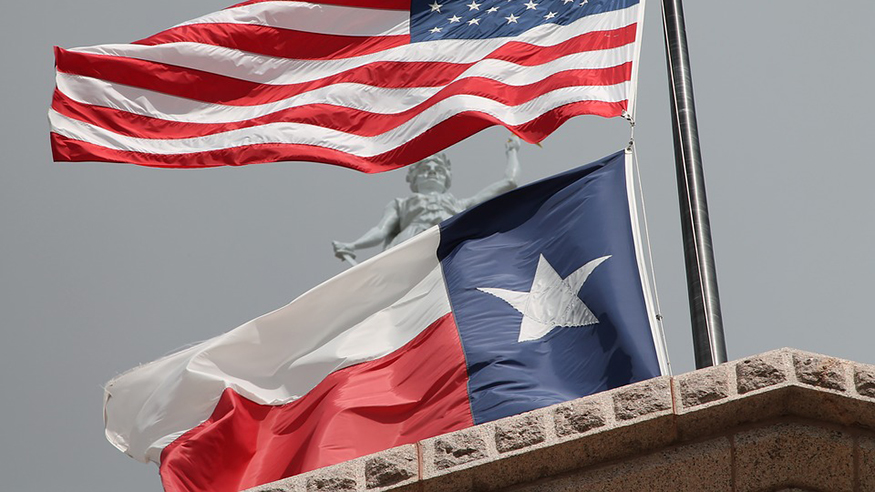LATEST IN LITIGATION
677 New Loudon Corporation v. New York Tax Appeals Tribunal
The U.S. Supreme Court denied the petition for a writ of certiorari, concerning whether a state may discriminate in taxation among First Amendment-protected materials based on the perceived value of their content.
Alexander v. United States
The U.S. Supreme Court upheld a law that allowed the government to seize and destroy Ferris J. Alexander’s adult businesses under the federal Racketeer Influenced and Corrupt Organizations (RICO) Act when he was convicted of selling seven obscene magazines and videos.
American Amusement Machine Association, et al. v. Kendrick, et al.
The 7th Circuit ruled that an Indianapolis ordinance adding “graphic violence” to the definition of “harmful to minors” is unconstitutional.
American Booksellers Association, Inc. v. Hudnut
The U.S. Supreme Court summarily affirmed the 7th Circuit’s decision striking down as unconstitutional the Indianapolis ordinance that defined “pornography” as a form of sex discrimination. The ordinance allowed individuals to sue a producer or distributor of material containing depictions or descriptions of nudity or sexual activity.
American Booksellers Association, Inc. v. McAuliffe
The U.S. District Court struck down Georgia’s law restricting the display of material with sexual content on its cover or in its contents as a violation of the First Amendment.
American Booksellers Association, Inc. v. Rendell
The Pennsylvania Superior Court upheld the state’s minors’ access statute.
American Booksellers Association, Inc. v. Schiff
The U.S. District Court ruled that New Mexico’s minors’ access is constitutional after limiting the statute’s definition of “harmful to minors.”
American Booksellers Association, Inc. v. Superior Court of Los Angeles County
The California 2nd District Court of Appeals ruled that an ordinance requiring that “harmful to minors” materials be shrink-wrapped is unconstitutional.
American Booksellers Association, Inc. v. Webb
The 11th Circuit found that the Georgia “harmful to minors” law is constitutional but narrowed the scope of the law to limits on display only if the material is harmful to the oldest minors.
American Booksellers Foundation for Free Expression v. Coakley
The U.S. District Court found that a Massachusetts law that criminalized any electronic distribution of “harmful to minors” material was likely unconstitutional.
American Booksellers Foundation for Free Expression v. Dean
The 2nd Circuit ruled that Vermont’s “harmful to minors” law as applied to the Internet violates the First Amendment and the Commerce Clause.
American Booksellers Foundation for Free Expression v. Strickland
The 6th Circuit upheld Ohio’s “harmful to minors” Internet statute after the Ohio Supreme Court narrowed it so that it does not apply to websites, listservs or public chatrooms and is limited to “personally directed” communications. In the initial part of the lawsuit, the U.S. District Court struck down a provision in the law that included depictions or descriptions of violence to the definition of “harmful to minors.”
American Booksellers Foundation for Free Expression v. Sullivan
The U.S. District Court struck down Alaska’s application of its “harmful to minors” law to electronically transmitted speech and the state’s “harmful to minors” law, declaring both an unconstitutional restriction on the free speech rights of adults.
American Civil Liberties Union v. Goddard
The U.S. District Court ruled that Arizona’s “harmful to minors” statute as applied to the Internet is unconstitutional.
American Civil Liberties Union v. Johnson
The 10th Circuit ruled that New Mexico’s “harmful to minors” statute as applied to the Internet is unconstitutional.
American Civil Liberties Union v. Mukasey
The U.S. Supreme ruled in 2004 that the federal Child Online Protection Act (COPA) is overbroad and it was not the least restrictive means to prevent minors from accessing material harmful to minors. The Court remanded it to the U.S. District Court for fact-finding. The U.S. District Court struck down the law, which the 6th Circuit upheld. The Supreme Court refused to hear the case for a third time, leaving in place the decision that the law is unconstitutional.
American Library Association v. Pataki
The U.S. District Court struck down New York’s “harmful to minors” on the Internet statute as a violation of the Commerce Clause of the U.S. Constitution.
Animal Legal Defense Fund v. Wasden
Media Coalition Foundation joined an amicus brief urging the Ninth Circuit to uphold the lower court’s ruling that Idaho’s “ag-gag” law is unconstitutional.
Antigone Books v. Brnovich
The U.S. District Court for the District of Arizona permanently ordered state prosecutors to halt enforcement of a law that criminalizes the distribution of a nude photo without the consent of the person depicted. The order approved a joint final settlement between the parties.
Ashcroft v. Free Speech Coalition
The U.S. Supreme Court struck down provisions of the Child Pornography Prevention Act of 1996 that expanded the definition of child pornography to images do not include an actual child, such as visual media involving adults portraying minors, computer-generated images, drawings and sculptures. The Court held that child pornography is limited to depictions of actual minors.
Athenaco, Ltd. v. Cox
The U.S. District Court upheld Michigan’s law restricting the display of materials harmful to minors but clarified that the law only applies publications that have “harmful to minors” material on their covers or spines.
Austin v. Illinois
The U.S. Supreme Court denied the petition for certiorari seeking review of the Illinois Supreme Court ruling upholding the state’s law making it a crime to distribute nude images of a person if the publisher knew or should have known that the person in the image did not consent to the publication.
Bay News v. Freda Roberts, Tax Collector of Mobile County, Alabama
The Alabama Circuit Court struck down a Mobile County tax on magazines that depicted nudity.
Big Hat Books v. Prosecutors
The U.S. District Court ruled that an Indiana law imposing a license fee on retailers carrying any sexually explicit material was an unconstitutional tax on such material, content-based restriction and license on the retailer.
Book People, Inc. v. Wong
The U.S. District Court issued an injunction on a Texas law that would require publishers and booksellers to assign ratings to certain books, which would they then be barred from selling to school libraries.
Brockett v. Spokane Arcades, Inc.
The U.S. Supreme Court ruled that Washington’s use of the word “lust” in its definition of “prurient interest” goes beyond the three-pronged test in Miller/Ginsberg and is unconstitutional.
Brown v. Entertainment Merchants Association
In striking down a California law that banned video games with violent content, the U.S. Supreme Court ruled that all violent content is fully protected by the First Amendment for both adults and minors. The landmark ruling also set precedent that video games have the same First Amendment protection as other media. The 9th Circuit had previously ruled that the law’s labeling requirement is unconstitutional compelled speech and a content-based requirement.
City of Littleton, Colorado v. Z. J. Gifts D-4, L.L.C.
The U.S. Supreme Court upheld a Littleton, Colorado ordinance that does not provide a prompt judicial determination for adult licensing decisions.
City of Los Angeles v. Alameda Books, Inc.
The U.S. Supreme Court ruled that Los Angeles could use its 1977 study as the basis for an ordinance that did not allow two adult facilities in the same building.
City News & Novelty, Inc. v. City of Waukesha
The U.S. Supreme Court dismissed the case without reaching a decision on the merits, concerning whether municipalities must provide prompt judicial determination or simply the right to file promptly for judicial review in adult businesses licensing cases.
City of Renton v. Playtime Theatres, Inc.
The U.S. Supreme Court upheld a city ordinance that prohibits adult motion picture theaters from being located within 1,000 feet from certain facilities, such as schools and churches.
Council for Periodical Distributors Association v. Evans
The 11th Circuit ruled that the threats made by the Montgomery, Alabama District Attorney intimidating wholesalers and retailers into withdrawing adult magazines was an unconstitutional prior restraint.
Cyberspace Communications, Inc. v. Engler
The U.S. District Court ruled that Michigan’s “harmful to minors” law as applied to the Internet violates the First Amendment.
Davis-Kidd Booksellers, Inc. v. McWherter
The Tennessee Supreme Court ruled that the state’s display provision was constitutional but only for material found to be “borderline obscenity,” and that the “excessive violence” provision of the definition of “harmful to minors” was unconstitutional.
Denver Area Educational Telecommunications Consortium, Inc. v. FCC
The U.S. Supreme Court ruled that the government could only impose “obscenity” and “harmful to minors” standards on cable television, instead of the “indecency” standard.
Entertainment Merchants Association v. Henry
The U.S. District Court struck down an Oklahoma law that banned the sale of video games with “inappropriate violence” to minors by adding material containing “inappropriate violence” to the state’s “harmful to minors” law.
Entertainment Software Association v. Blagojevich
The 7th Circuit upheld a U.S. District Court decision striking down an Illinois law that banned the sale or rental of video games with sexually explicit content to minors beyond what may be restricted by the Supreme Court. The District Court had previously ruled a provision in the law that banned the sale or rental of video games with violent content to minors unconstitutional, which the state did not appeal in the 7th Circuit.
Entertainment Software Association v. Foti
The U.S. District Court struck down a Louisiana law that added video games with violent content to the definition of “harmful to minors,” as well as video games with sexual content.
Entertainment Software Association v. Granholm
The U.S. District Court ruled that a Michigan law that added video games with “ultra-violent explicit” content to the definition of “harmful to minors” was unconstitutional.
Entertainment Software Association v. Swanson
The 8th Circuit struck down a Minnesota law that restricted the sale of rental of games rated “M” or “AO” for any content, including violence, to anyone under 17 and imposed a $25 fine on any minor purchasing or renting a restricted game.
Ex Parte Jordan Bartlett Jones
Media Coalition Foundation filed an amicus brief urging Texas’ highest court to strike down a state law that bars the distribution of certain images without the consent of the person in the image.
Fayetteville Public Library v. Crawford County, Arkansas
The U.S. District Court granted a preliminary injunction blocking a law that would require booksellers and librarians to limit their books appropriate to all minors only or exclude all minors from their premises. Another provision on the law allows any person in Arkansas to demand the removal of a book that the person deems inappropriate.
Florence v. Shurtleff
The State of Utah agreed to a stipulated order that limited the scope of the state’s Internet “harmful to minors” law so that it does not apply to the posting of “harmful to minors” content on generally accessible websites.
Fort Wayne Books, Inc. v. Indiana
The U.S. Supreme Court ruled unanimously that the government may not use RICO laws to make a wholesale pre-trial seizure of books or magazines.
FW/PBS, Inc. v. City of Dallas
The U.S. Supreme Court struck down a licensing provision for adult businesses in Dallas because it failed to provide the businesses with proper procedural protection.
Garden District Book Shop v. Stewart
Media Coalition brought a lawsuit on behalf of some of its members and Louisiana booksellers and publishers challenging a law that required websites to age-verify every internet user before providing access to material that could be deemed “harmful to minors.”
General Media Communications, Inc. v. Cohen
In General Media Communications v. Cohen, the 2nd Circuit Court ruled that the Military Honor and Decency Act, a law that banned the sale or rental, at a military facility, of any material that “depicts or describes nudity … in a lascivious way” is constitutional. In PMG International v. Rumsfeld, the 9th Circuit Court affirmed the U.S. District Court’s dismissal of the lawsuit arguing that the Military Honor and Decency Act is unconstitutional.
Higginbotham v. City of New York
The U.S. Court of Appeals for the Second Circuit dismissed Higginbotham’s First Amendment retaliation lawsuit against police officers who arrested him when he was filming an Occupy Wall Street arrest.
In Re: A Court of Mist and Fury, In Re: Gender Queer
A Virginia judge dismissed the obscenity case against the books A Court of Mist and Fury and Gender Queer, finding that the law was unconstitutional as prior restraint, that it had insufficient knowledge requirement, and there was insufficient notice.
Interactive Digital Software Association v. St. Louis County, Missouri
The 8th Circuit ruled unconstitutional a St. Louis County ordinance that made it a crime to knowingly sell, rent, make available, or permit the “free play of” video games with violent content to or by minors without the consent of a parent or guardian.
Jenkins v. Georgia
The U.S. Supreme Court ruled that a local jury was wrong in declaring the movie “Carnal Knowledge” obscene.
Leech v. American Booksellers Association, Inc.
The Tennessee Supreme Court rules that the state’s obscenity and display law is unconstitutional.
Lo-Ji Sales, Inc. v. New York
The U.S. Supreme Court ruled that a generalized search and seizure of magazines and movies from the petitioner’s store without a particularized search warrant is unconstitutional.
Lohan v. Take-Two Interactive Software Inc. / Gravano v. Take-Two Interactive Software Inc.
Plaintiffs Lohan and Gravano argued to rewrite New York Civil Rights Law Section 51 to include protections against the inclusion of “image,” “persona,” or “likeness” in any work for which a creator or publisher seeks compensation.
Lozman v. City of Riviera Beach
In 2018, the U.S. Supreme Court held that under the circumstances of Lozman’s case, the existence of probable cause does not bar Lozman’s First Amendment retaliation claim.
Lyle v. Warner Brothers Television Productions
The California Supreme Court dismissed claims of sexual harassment against Warner Brothers. Media Coalition submitted an amicus brief highlighting the potential negative impact of a “creative necessity” test announced by the California Court of Appeals.
Maryland v. Macon
The U.S. Supreme Court ruled that a detective entering an adult store, purchasing magazines, and then arresting the clerk for selling obscene material did not constitute an unlawful search and seizure under the Fourth Amendment.
Miller v. California
The Supreme Court established a three-part definition of obscenity that has remained the standard for judging the legality of sexually explicit material ever since.
Minnesota v. Casillas
Some members of Media Coalition and other organizations filed an amicus brief in the Minnesota Supreme Court urging the court to uphold the decision of the Minnesota appellate court striking down the state’s law barring the distribution of certain images without consent.
Missouri State Conference of NAACP v. Wentzville School District
Some members of Media Coalition filed an amicus brief in the U.S. District Court for the Eastern District of Missouri, in support of an ACLU and NAACP challenge to the removal of books from school libraries in the Wentzville School District. The brief argued that the books did not fit the definition of “harmful to minors.”
NetChoice v. Attorney General, Florida
Media Coalition Foundation signed an amicus brief submitted in the Eleventh Circuit Court of Appeals arguing that a Florida law that bars the removal, labeling, hiding speech, or suspending of accounts on certain social media websites of candidates for elected office or on certain “journalistic enterprises.”
NetChoice v. Paxton
Media Coalition Foundation signed an amicus brief urging the Fifth Circuit Court of Appeals to uphold the district court finding that the Texas law on social media censorship is unconstitutional.
New York v. Ferber
The U.S. Supreme Court established that actual images of minors engaged in sex or lascivious nudity is a class of speech exempt from First Amendment protection.
Newton v. Slye
The U.S. District Court denied an injunction against restrictions on posting Banned Books Week material in a high school.
Nieves v. Bartlett
The Supreme Court held that to prevail on a retaliatory arrest claim, the plaintiff must show that the official acted with a retaliatory motive and the act was a “but-for” cause of the Constitutional injury.
Penthouse International, Ltd. v. McAuliffe
The 5th Circuit ruled that harassment and arrests of retailers prior to a final adjudication on obscenity is an unconstitutional prior restraint.
People v. Wiener
The California 4th District Court of Appeals ruled that the state’s privacy laws do not protect against prosecution for the distribution of obscene material.
Playboy Enterprises, Inc. v. Meese
The U.S. District Court ordered the Meese Commission to withdraw its letter to corporations threatening to list them as distributors of pornography and barred any such list of retailers from being issued.
Pope v. Illinois
The U.S. Supreme Court clarified the “value” prong of the Miller test by ruling that the literary, artistic, political or scientific value of an allegedly obscene work must be weighed by a standard broader than that of any particular community. The new standard is that of a “reasonable person.”
Porco v. Lifetime
The New York appellate court dismissed the appeal, finding that even though the film was a dramatization that made changes to certain aspects of the story, it still addressed matters of public interest and acknowledged that it was a blend of fact and fiction; therefore, it was exempt from the right of publicity claim.
Powell’s Books, Inc. v. Kroger
The 9th Circuit struck down the Oregon statute barring the dissemination of sexual material to minors that does not follow the test in Miller/Ginsberg.
Prison Legal News v. Kane
The U.S. District Court for the Middle District of Pennsylvania struck down a Pennsylvania law that allowed victims to stop conduct — including speech — by a convicted offender if it causes “mental anguish.”
Prison Legal News v. Secretary, Florida Department of Corrections
2018 Summary On October 11, 2018, Media Coalition Foundation and the Authors Guild joined an amicus brief signed by 28 other organizations that favor freedom of the press and oppose censorship. The brief asks the United States Supreme Court to grant certiorari in a case filed by Prison Legal News, a monthly magazine that focuses […]
PSINet, Inc. v. Chapman
The 4th Circuit found that a Virginia law amending the state’s existing “harmful to juveniles” law to impose restrictions on Internet content was invalid under both the First Amendment and the Commerce Clause.
Reno v. American Civil Liberties Union
The U.S. Supreme Court unanimously struck down two provisions of the Communications Decency Act of 1996 that respectively sought to criminalize the “knowing” transmission to minors of messages that are “obscene or indecent” and “patently offensive.”
Shipley, Inc. v. Long
The U.S. District court struck down a provision in an Arkansas law that required retailers to segregate and use blinders for materials “harmful to minors.”
Southeast Booksellers Association v. McMaster
The U.S. District Court struck down a South Carolina law applying the state’s existing “harmful to minors” statute to the Internet.
Susan B. Anthony List v. Driehaus
In 2014, the Supreme Court unanimously held that “a credible threat of enforcement” is a sufficient threat of injury to establish standing in a First Amendment case when bringing a “pre-enforcement” challenge.
Tattered Cover, Inc. v. Brohl
The U.S. District Court struck down a Colorado law restricting the display of magazines whose focus is marijuana or the marijuana business.
Tattered Cover, Inc. v. City of Thornton
The Colorado Supreme Court ruled that a search warrant seeking information about a book purchased by a Tattered Cover customer violated both the First Amendment and the Colorado Constitution.
Tattered Cover, Inc. v. Tooley
The Colorado Supreme Court ruled that Colorado’s “harmful to minors law” is unconstitutional.
Tobinick v. Novella
Dr. Edward Tobinick sued Dr. Steven Novella, a professor at Yale University Medical School, for criticizing his unusual medical treatments that he provides at his clinics in Florida and California. In a blog post on his website “Science Based Medicine,” Novella called Tobinick’s clinic, the Institute of Neurological Recovery, a “quack clinic.” Novella also took issue that Tobinick used the anti-inflammatory drug Enbrel to treat Alzheimer’s disease, as reported by an article in the Los Angeles Times.
United States v. Alvarez
The U.S. Supreme Court struck down the Stolen Valor Act, which made it a crime for any person to falsely represent that he or she had been awarded any decoration or medal authorized by Congress for the Armed Forces.
United States v. Knox
The 3rd Circuit ruled that non-nude depictions of minors can be prosecuted as child pornography.
United States v. PHE, Inc.
The 10th Circuit Court of Appeals found that the Justice Department’s use of multi-jurisdictional prosecutions against Adam and Eve, a mail order business for sexually explicit materials, to force the company out of business was malicious.
United States v. Playboy Entertainment Group, Inc.
The U.S. Supreme Court ruled that the section of the federal Telecommunications Act of 1996 that requires cable operators with channels with mostly sexually explicit programming to fully block audio or visual signals at a time when children may be watching is unconstitutional.
United States v. Stevens
The U.S. Supreme Court struck down a 1999 federal law that criminalized the creation, sale or possession of images of images of animal cruelty if the act depicted in the image is illegal either where the image was captured or where it was possessed or distributed.
United States v. Williams
The U.S. Supreme Court upheld the pandering provision in the PROTECT Act.
Upper Midwest Booksellers Association v. City of Minneapolis
The 8th Circuit ruled that a “harmful to minors” access statute is a permissible “time, place and manner” restriction on speech.
Vance v. Universal Amusement Co., Inc.
The U.S. Supreme Court ruled that a Texas public nuisance statute permitting prior restraint of allegedly obscene motion pictures without prompt judicial review is unconstitutional.
Video Software Dealers Association v. City of Oklahoma
The U.S. District Court ruled that the film “Tin Drum” is not child pornography and that its seizure by the Oklahoma City police was an unlawful prior restraint.
Video Software Dealers Association v. Maleng
The U.S. District Court struck down a law that prohibited the rental or sale to anyone under 17 of computer and video games containing depictions of violence against law enforcement officers.
Village Books v. City of Bellingham
The U.S. District Court struck down the City of Bellingham’s ordinance that provided a cause of action to allow individuals to sue publishers and retailers for producing material containing depictions or descriptions of nudity or sexual activity.
Virginia v. American Booksellers Association, Inc.
The 4th Circuit upheld Virginia’s “harmful to minors” display law after the Virginia Supreme Court narrowed it to apply only to the display of materials that would be illegal for the oldest minors. Before remanding the case to the 4th Circuit, the U.S. Supreme Court affirmed the plaintiffs’ standing to challenge the law absent the threat of prosecution.
Yahoo!, Inc. v. LICRA (La Ligue Contre Le Racisme et L’Antisemitisme)
A French court held U.S.-based Yahoo!, Inc. liable under a broad French anti-hate law for content carried on its auction site in the United States, because the site is accessible to French citizens.











